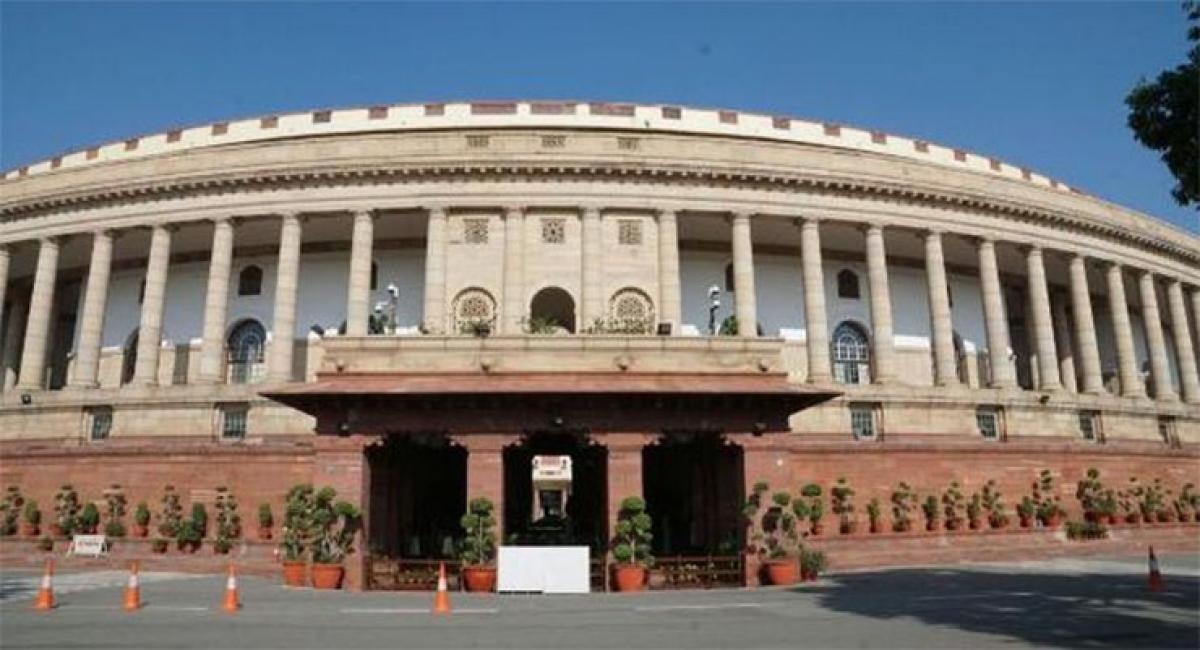Live
- TTD closes Akasaganga, Papavinasam roads
- High costs, limited results: Drone mist-spraying pilot project faces setback
- Poster war on as parties compete for voter attention
- Many dams, tanks filled as rains batter Tirupati dist
- Mayawati, Akhilesh condemn damage to Constitution replica
- Mann slams Centre over ‘one nation, one election’
- Techie suicide case: Mother-in-law flees Jaunpur home
- State government to Supreme Court: New guidelines on how to apply anti-gangster law in UP
- CM Chandrababu to unveil Vision 2047 document today in Vijayawada, traffic restrictions imposed
- State-level LIMES-2k24 inaugurated
Just In

Monsoon Session of Parliament Day 2 A Washout . Both Houses of Parliament faced repeated disruptions and were unable to take up scheduled business for the day. Opposition parties in Lok Sabha and Rajya Sabha continued to raise demands insisting upon the resignation of the Minister of External Affairs.
Both Houses of Parliament faced repeated disruptions and were unable to take up scheduled business for the day. Opposition parties in Lok Sabha and Rajya Sabha continued to raise demands insisting upon the resignation of the Minister of External Affairs.
Opposition parties also raised the issue of allegations against Chief Ministers with regard to developments relating to VYAPAM and Lalit Modi. It was pointed out by the Leader of the House in Rajya Sabha that such issues were outside the purview of the central government and were related to state governments. Opposition benches challenged this view, stating that these developments were not ‘state’ issues and concern national interest.

The Select Committee examining the Constitutional Amendment Bill on GST submitted its report. The committee, as reported has made certain recommendations with regard to the additional 1% tax and compensation for states.
The Bill is an enabling legislation which will subsequently give Parliament and state legislatures concurrent powers to make laws on GST. The proposed Bill exempts alcohol for human consumption from the purview of GST. GST will apply to five petroleum products at a later date. The Bill empowers the centre to impose an additional tax of up to 1%, on the inter-state supply of goods for two years or more. This tax will accrue to states from where the supply originates.
In this context, it may be argued that the provisions of this Bill do not fully conform to an ideal GST regime. Deferring the levy of GST on five petroleum products could lead to cascading of taxes.
It may also be argued that the additional 1% tax levied on goods that are transported across states dilutes the objective of creating a harmonised national market for goods and services. Inter-state trade of a good would be more expensive than intra-state trade, with the burden being borne by retail consumers. Further, cascading of taxes will continue.
To further understand the key features and issues of the Bill, please read our analysis here.
The deadline for the Committee to submit its report on the Land Acquisition Bill has been extended to the first week of August.

© 2024 Hyderabad Media House Limited/The Hans India. All rights reserved. Powered by hocalwire.com







